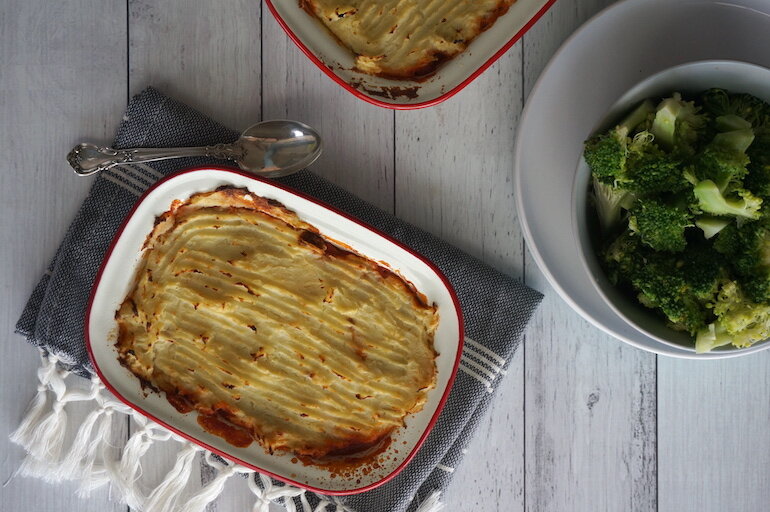Macronutrients for kids
Often when we think macronutrients, we think energy, weight loss or muscle gain. But, carbohydrates, protein and fats are more than that, especially when it comes to our children.
Often when we think macronutrients, we think energy, weight loss or muscle gain. But, carbohydrates, protein and fats are more than that, especially when it comes to our children.
Macros are essential nutrients of a balanced diet required for your child's optimal growth and development. They provide energy, support immune system function, help build hormones and neurotransmitters, and aid the absorption of micronutrients (vitamins and minerals). Macros are the cornerstone of your child’s diet and can greatly impact how your child develops.
Here, I zero in on carbs, protein and fats looking at what they do and quality sources.
Carbohydrates
Carbohydrates are an important macronutrient that is often a staple in children’s diets. Unfortunately, most kids are filling themselves up with refined, SIMPLE carbs like white bread, pasta, biscuits and crackers, and with not enough healthy food made of COMPLEX carbs.
Carbs have copped some flack recently with the rise of the low-carb and keto diets. Many suggest carbohydrates shouldn't be included as part of a healthy diet. While these restrictive diets have their place and can be very beneficial for some, in my opinion, complex carbohydrates provide essential nutrients for children’s growth and development.
The importance of carbohydrates for young children
Carbs fuel your child’s metabolism, they feed their brain and are vital for the development of the nervous, immune and digestive system. They're also a quick energy source. It’s the excess refined and processed carbohydrates that can cause issues in the diets of both children and adults. Included in large amounts, refined carbohydrates can negatively influence your child's body weight, energy levels and blood sugar regulation. This can lead to health issues such as insulin residence and type 2 diabetes.
Ways to include carbohydrates in your child’s diet:
Fresh fruit
Carrot, cumber, capsicum, celery, snow pea veggie sticks
Rolled oat porridge or bircher
Roast potato, sweet potato or parsnip chips
Sourdough or rye bread
Legume pasta
Whole grains such as wild rice, millet, quinoa and barley
Mountain bread wraps
Brown rice or quinoa sushi
Rice paper rolls
Wholemeal spelt flour pizza scrolls
Wholemeal spelt flour muffins
Brown rice crackers
Corn chips
Protein
When it comes to the growth and development of every single cell, the body needs protein. That's why it's often labelled the building block nutrient and it’s emphasised in so many diets.
The importance of carbohydrates for young children
Protein is required to build cell and tissue structure, for muscle function, for hormone signalling, for the transport of blood, to build antibodies and for the digestion of food. Protein is also important for your child's energy levels and sleep quality.
Protein is made up of 20 amino acids. Of these, 9 are essential, meaning the body can’t make them and you’ll have to get them from the diet. You’ll find a wide variety of “complete” protein sources in animal products such as meat, fish, eggs and dairy products. “Incomplete” protein, on the other hand, are protein-containing plant foods such as legumes, nuts, seeds and quinoa. Both can have their place in a healthy diet.
For vegetarian and vegan children, including a variety of incomplete protein sources throughout the day will help ensure your child has an adequate protein intake. Depending on the rest of your child's diet, you may need supplementation (particularly vegans). Best to speak to your health practitioners such as a paediatrician or nutritionist before embarking on their restrictive diets to avoid any essential nutrient deficiencies.
Ways to include protein in your child’s diet:
Omelette or scrambled
Buckwheat pancakes
Homemade baked beans on sourdough
Greek yoghurt
Quinoa porridge
Chia pudding with nuts and seeds
Hummus
Homemade protein balls
Tuna pasta salad
Chicken casserole
Roast with vegetables
Spaghetti Bolognese
Homemade fish fingers
Meatballs
Healthy fats
Thankfully the days of low-fat eating are long gone and we’re including healthy fats back in our diets. It’s now well-known consuming quality fats doesn’t lead to weight gain.
The importance of carbohydrates for young children
Fats are an essential component of healthy eating and required for your child’s growth and energy. They’re used to build neural tissue for the nervous system, to make hormones and for the absorption of fat-soluble vitamins. Fats also give food flavour, texture and help to provide satiety.
There are three main types of fats: unsaturated (monounsaturated, polyunsaturated and omega-3 fatty acids), saturated and trans fats.
To remove the confusion about what type of fat your child should consume, I recommend you stick with natural forms of fat across the food groups and avoid fried foods and highly processed snack foods. Look past the low-fat yoghurts, as well as vegetable and seed oils.
Ways to include fat in your child’s diet:
Avocado on crackers
Greek or coconut yoghurt with nuts and seeds
Homemade bliss balls
Hard cheeses
Salmon with veggies
Veggies drizzled with olive oil
Guacamole or hummus
Hard-boiled eggs
Egg muffins or frittata
Smoothie with avocado or coconut milk
Tinned tuna
If you're unsure whether your child is meeting the nutrient requirements to support their health and wellbeing, schedule a complimentary Wellness Discovery Call. We can discuss what they’re currently eating and some possible strategies that may help you create a more nutrient balanced diet.
Book a consult
Let us help you support you in raising a happy, healthy child.
In our clinical work, we’ve helped hundreds of families in overcoming health challenges and transforming their children’s wellbeing.
Schedule a FREE Discovery Call to discuss how we can best support you and your child in their journey to health.





